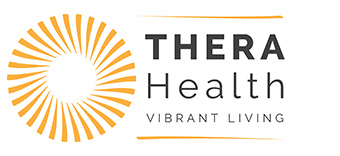It’s official – the three worst diets, as voted on by hundreds of Australia’s nutrition experts – are the Lemon Detox Diet, SkinnyMe tea, and the Ashy Bines Bikini Body Challenge Diet.
More than 200 Accredited Practising Dietitians took part in an online survey run by Australia’s peak nutrition body, the Dietitians Association of Australia (DAA) on the diets most to be avoided in 2014. From a list of eleven popular diets, the Lemon Detox Diet came out as the ‘worst’ by nutrition experts for the third year running, with more than two thirds (68%) of the dietitians voting against it.
SkinnyMe tea was shunned by more than half of the dietitians (55%) while the clean eating diet advice provided with in the program of the Ashy Bines Bikini Body Challenge attracted votes from 32% of nutrition experts.i
DAA Spokesperson and Accredited Practising Dietitian, Melanie McGrice, acknowledges that with rates of overweight and obesity as high as 79% in some areas of Australia,ii weight is a big concern. However, there’s no one-size-fits-all solution.
Ms McGrice says, “The problem with fad diets is that they’re all about restrictive eating patterns that you can’t stick to over the long haul and may even undermine your health.”
“What you lose on these detox diets, like the Lemon Detox Diet and SkinnyMe tea, is usually fluid, healthy gut bacteria, electrolytes – all the things to keep your body healthy, rather than fat”, Ms McGrice says. “And you don’t need to go on a severe detox because your body has an inbuilt detox system – the lungs, liver, and kidneys working every minute of the day.”
“If you want to ‘detox’, nourish your body by cutting down on fatty, highly-processed foods, alcohol and caffeine, and eat a balanced diet – making sure you get plenty of fruit, vegetables, whole grains and water”, says Ms McGrice.
DAA says Australians should avoid fad diets, which often miss out on whole food groups. Diets such as the Ashy Bines Bikini Body Challenge often demonise certain foods and make it a challenge to meet nutritional needs.
Ms McGrice says, “For long-term success, Aussies should choose realistic and achievable goals that they can do every day. For example, including an extra serve of vegetables at lunch and dinner or cutting back your alcohol.”
DAA has launched its annual Australia’s Healthy Weight Week campaign (17-23 February), which focuses, this year, on helping adults between 25-50 years to achieve and maintain a healthy weight, using simple tools like home cooking and right portion sizes.
To kick things off, Ms McGrice gives her top tips for healthy home cooking.
- Plan. Plan your menu for the week, make a shopping list and stick to it. Encourage the family to get involved and remember that it’s harder to eat junk food if it’s not in the house. Extra tip – don’t shop on an empty stomach.
- Swap. Choose low-fat, salt-reduced, high-fibre versions of the foods you love. For example, swap full-fat yoghurt for a reduced-fat variety. Buy salt-reduced sauces, stocks, soups and tinned tomatoes. Choose whole grain varieties of breads and breakfast cereals.
- Simplify. Healthy cooking doesn’t mean gourmet. Focus on fresh, seasonal produce and the quarter, quarter, half rule. One quarter of a plate of low GI carbohydrates, another quarter of lean protein and half a plate of vegetables in a rainbow of colours.
Visit www.healthyweightweek.com.au for more information.







Leave a Reply
Want to join the discussion?Feel free to contribute!